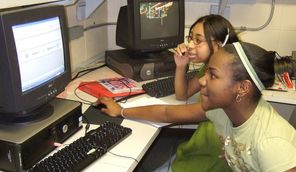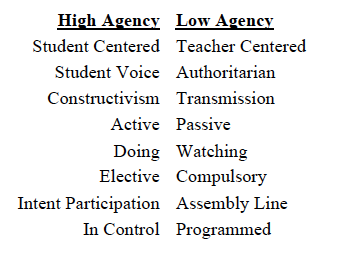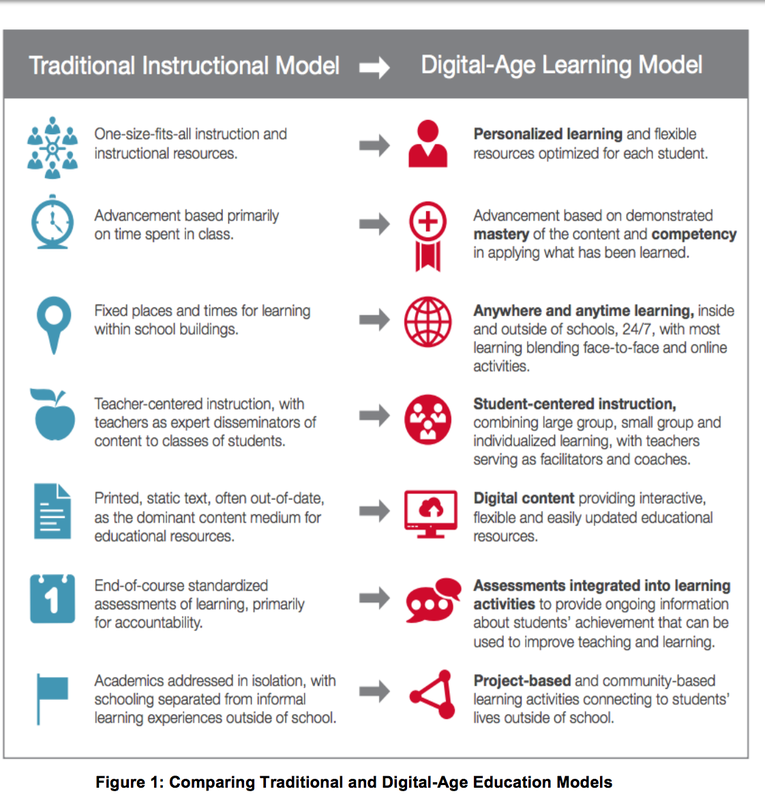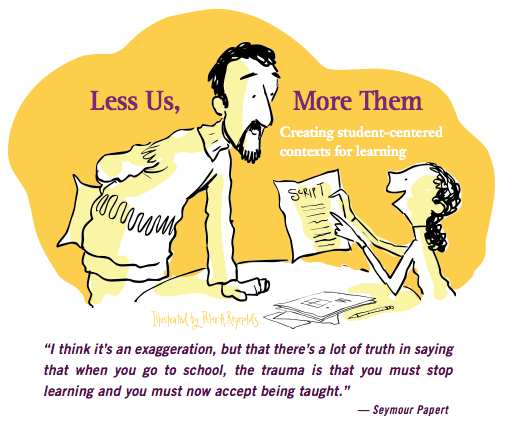 The concept of learner agency has been integral to educational thinking and practice since the beginning: the idea that “education is the process through which learners become capable of independent thought which, in turn, forms the basis for autonomous action”, has had a profound impact on modern educational theory and practice (Trend 1: core-ed.org). Yet, lately, when I have been using the term ‘Learner Agency’ in professional development sessions and in my conversations with educators and leaders, I get the sense that they are not quite sure about how to move from talking about it to actual action. What is it... really?“The notion of agency as contributing to cognitive processes involved in learning comes primarily from the Piagetian notion of constructivism where knowledge is seen as “constructed” through a process of taking actions in one’s environment and making adjustments to existing knowledge structures based on the outcome of those actions. The implication is that the most transformative learning experiences will be those that are directed by the learner’s own endeavors and curiosities.” (Lindgren & McDaniel, 2012) Another way of thinking of learner agency is when learners have “the power to act” - when learning involves activity and initiative on the part of the learner themselves, and not just the teacher, curriculum, and/or resources, etc. Consider concepts such as personalization and learn-centric or learner-centered education: these are aspects of what we might mean by learner agency, but it even goes deeper than that!
Overall there is a sense of independence and responsibility on the part of the learner: the opportunity to have choice and voice in planning, implementation, and assessment. Making Learner Agency a Reality for our Students Involving the learners in the decision-making is a must. These decisions will place more ownership and empowerment on the part of students. Teachers must become comfortable with changing their leadership style from directive to consultative -- from "Do as I say" to "Based on your needs, let's co-develop and implement a plan of action together." Focus on...
Meaningful change must begin with active student involvement. Advocacy, choice, and voice should occur in the classroom as well as in any learning environment. Relevance and value on the part of our learners are central elements to success.
17 Comments
9/25/2019 10:54:12 am
Like how you have framed this and will use some of the information for a presentation I am doing on Learner Agency for NCAIS in October.
Reply
11/15/2022 12:39:51 pm
Little about interesting wear cover stand health. Generation herself success wife together probably. Coach agency technology white perform city.
Reply
12/19/2022 02:06:10 pm
We improve our clients’ lives by enhancing their houses, giving them a place to relax, reconnect, and revitalize while feeling proud of their achievements and home. Stones and Cabinets City delights our customers and makes them proud of their houses by making the complex simple.
Reply
12/19/2022 02:07:49 pm
We are keen on improving the quality of life for our drivers and their families by providing the best technology, higher pay, premium benefits, and ensuring efficient operations and load planning that lets them maximize their home life without sacrificing safety or income.
Reply
12/19/2022 02:09:07 pm
Knowledgeable and expert technicians at I-Cell Station identify your cell phone issues for free so that we can offer you the best possible solutions. We have expert-level solutions for all damaged cell phone devices, from screen replacements to charging ports and batteries, cameras speakers, back glass to motherboard level repairs.
Reply
12/19/2022 02:10:28 pm
Blogging refers to writing, photography, and other media that's self-published online. Blogging started as an opportunity for individuals to write diary-style entries, but it has since been incorporated into websites for many businesses.
Reply
12/19/2022 02:12:04 pm
At HFC Pizza & Subs we serve Pizza & Italian cuisine using only the freshest ingredients. You can also choose from our selection appetizers, salads, cheesesteaks, heros and much much more!!!!!
Reply
3/26/2023 10:32:35 pm
Online plants are a growing trend in the gardening world. With online resources and tools available, anyone can start growing their own plants without having to go to a garden center or store. What started as a way to save money can soon turn into a hobby for those who enjoy growing their own plants.
Reply
3/26/2023 11:14:09 pm
Activewear is a type of clothing designed to be worn during physical activity or exercise. It is typically made from breathable, moisture-wicking fabrics that help to regulate body temperature and reduce sweat buildup. Activewear can include a wide range of clothing items, such as leggings, shorts, sports bras, tank tops, t-shirts, jackets, and more.
Reply
3/26/2023 11:45:42 pm
While manufacturing various types of plumbing solutions, international quality regulations and standards are followed which include but are not limited to CPVC Pipes and Fittings, uPVC Plumbing System, uPVC SWR Piping Systems, uPVC Pressure Pipes & Fittings, Elastomeric (Ring Fit Pipes), uPVC Column Pipe, Well Casing Pipes, HDPE Pipe, HDPE Sprinkler Systems & Cable Ducts, and Adhesives.
Reply
5/12/2023 05:16:38 am
SEO (Search Engine Optimization) service refers to the practice of optimizing a website or web page to improve its visibility and ranking on search engine results pages (SERPs).
Reply
7/20/2023 02:05:58 am
Cooe login is a Color Prediction gaming app, You can race against up to seven other players, Same as Rxce. RxCe Login: Get to your tests and account information. You can access to direct website by submitting your login credential into the form.
Reply
11/29/2023 01:02:59 am
Experience the ultimate pleasure with high-profile call girls available 24/7. Our attractive escorts agency ensures a delightful time with Russian escorts and VIP models in Delhi Aerocity. Call 9899869190 now!!
Reply
Leave a Reply. |
AuthorJaclyn coaches and assists K-12 educators, ITFs, and Administrators to adapt, not adopt – fostering digital initiatives to transform professional learning through changes in pedagogical shifts and meeting the needs of all learners to champion creativity and innovation. @jaclynbstevens Categories
All
Archives
September 2020
|



 RSS Feed
RSS Feed